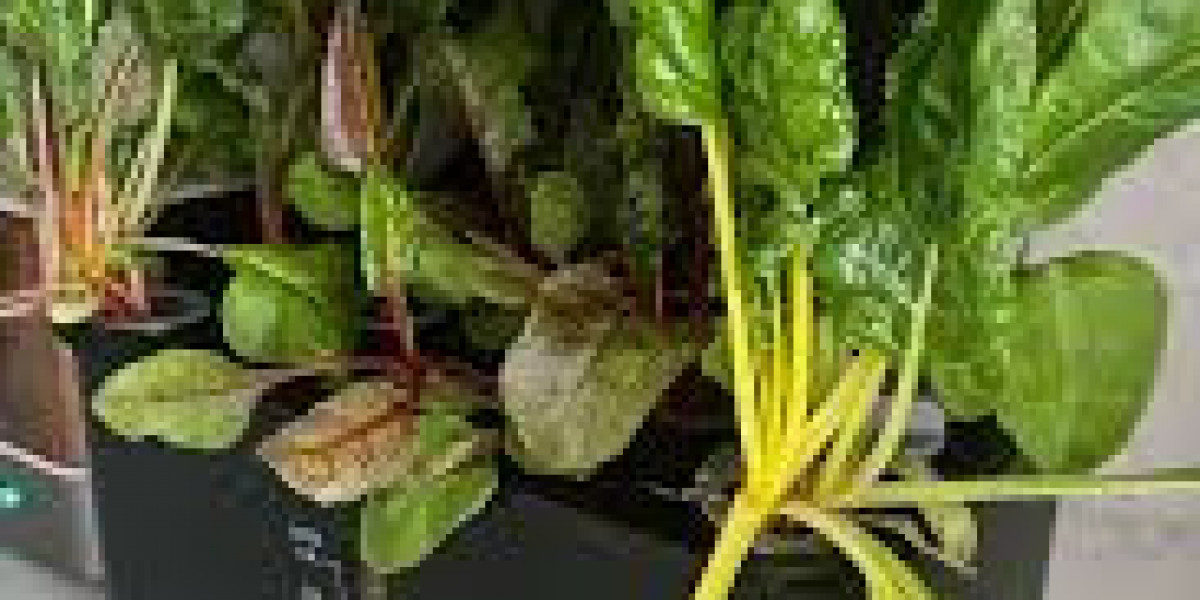Swiss chard is a leafy green vegetable that’s not only visually stunning—with its vibrant stalks of red, yellow, and white—but also packed with nutrients like vitamins A, C, and K, as well as magnesium and iron. While it grows well in soil, more growers are turning to hydroponics to produce faster, cleaner, and more space-efficient harvests. Hydroponic Swiss chard is an excellent choice for both beginners and seasoned growers due to its resilience, high yield, and minimal maintenance requirements.
Why Grow Swiss Chard Hydroponically?
Hydroponic systems use nutrient-rich water instead of soil, offering plants everything they need to thrive. Swiss chard is especially well-suited for hydroponics for several reasons:
Fast Growth: Swiss chard matures quickly in a controlled hydroponic environment, with some varieties ready to harvest in just 30 to 45 days.
Compact Space Use: Ideal for vertical farming or indoor gardens, hydroponic systems make it easy to grow a large amount of Swiss chard in a small area.
Consistent Quality: Since hydroponics eliminates many pests and diseases found in soil, you can expect healthier plants and cleaner produce.
Year-Round Production: With controlled lighting and temperature, Swiss chard can be grown indoors regardless of the season.
Best Hydroponic Systems for Swiss Chard
Swiss chard can adapt to several types of hydroponic systems, but the most popular options include:
NFT (Nutrient Film Technique): In this setup, a thin film of nutrient-rich water continuously flows over the plant roots. It’s ideal for leafy greens like Swiss chard due to its efficiency and space-saving design.
Deep Water Culture (DWC): Plants are suspended above a nutrient solution, with roots submerged directly in the water. This method promotes rapid growth and is easy to set up.
Ebb and Flow Systems: These systems periodically flood the root zone with nutrients and then drain away. Swiss chard thrives in this type of setup, particularly when grown with expanded clay pellets for root support.
Nutrient and Light Requirements
Hydroponic Swiss chard requires a balanced nutrient solution with the essential macronutrients—nitrogen, phosphorus, and potassium—as well as calcium and magnesium. You should aim for an electrical conductivity (EC) range of 1.8–2.2 and a pH between 6.0 and 6.5.
Swiss chard needs 12 to 16 hours of light per day. If you're growing indoors, LED grow lights are an efficient and effective solution. These lights can be adjusted to provide the ideal spectrum and intensity for leafy greens.
Common Challenges and Tips
Although Swiss chard is hardy, a few challenges can arise in hydroponic systems:
Nutrient Deficiencies: Monitor for signs like yellowing leaves (often a sign of nitrogen deficiency) or leaf curling (which can indicate magnesium or calcium imbalances).
Algae Growth: Algae can compete with your plants for nutrients. Use opaque containers and cover exposed water to minimize light penetration.
Root Rot: Ensure good oxygenation of the water and avoid overwatering to prevent root diseases.
Harvesting and Use
You can begin harvesting Swiss chard when the leaves are around 6 to 8 inches long. Use the “cut and come again” method by snipping outer leaves while allowing the center to continue growing. This allows for continuous harvests over several weeks.
Swiss chard is incredibly versatile in the kitchen. It can be sautéed, added to soups and stews, blended into smoothies, or even eaten raw in salads. Its mild, slightly earthy flavor pairs well with garlic, lemon, and olive oil.
Getting Started
For those new to hydroponics or looking to expand their setup, it’s helpful to find guidance and supplies from a trusted source. Rochester Hydroponics offers products, advice, and support for hydroponic growers of all levels, including helpful resources for growing leafy greens like Swiss chard.
Conclusion
Hydroponic Swiss chard is a rewarding crop for anyone looking to produce healthy, fresh greens year-round. With the right setup, nutrients, and care, you’ll enjoy a beautiful and nutritious harvest with minimal space and water usage. Whether you’re gardening for health, sustainability, or profit, Swiss chard is a smart addition to your hydroponic garden.








